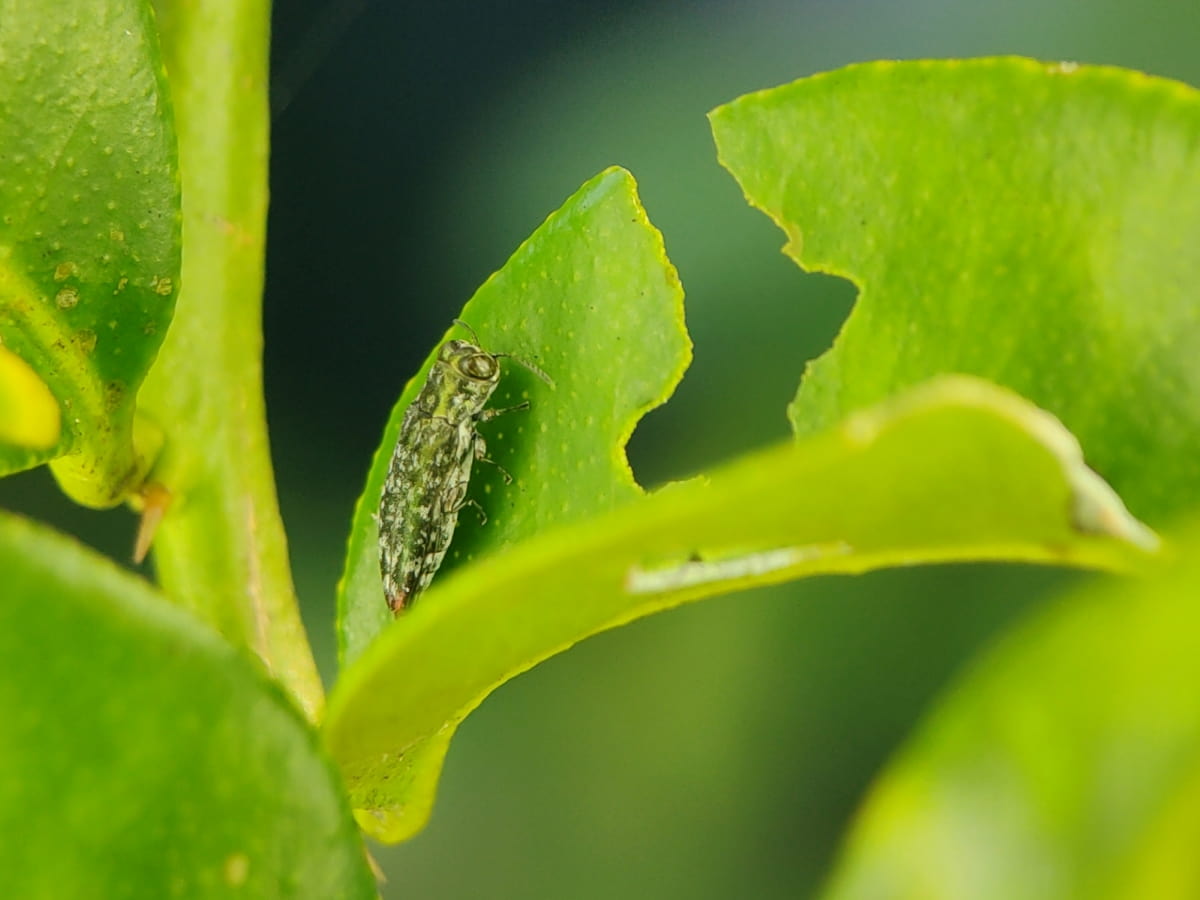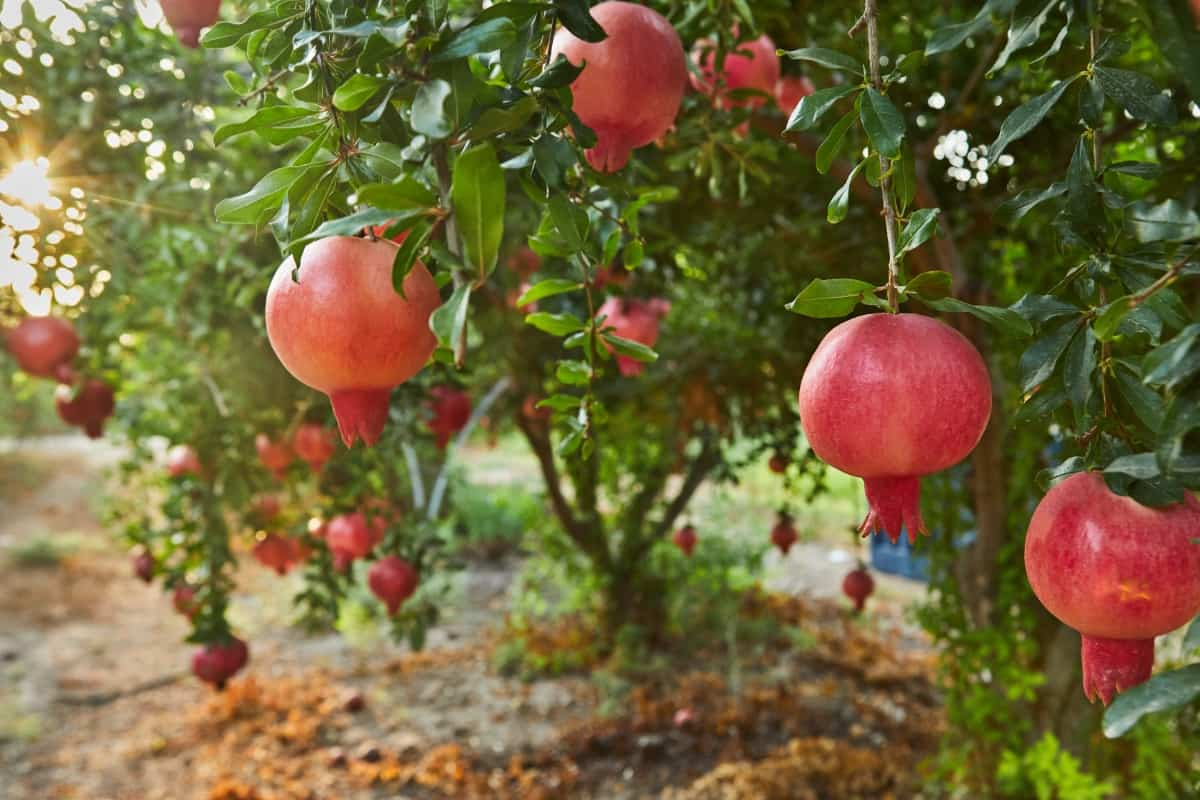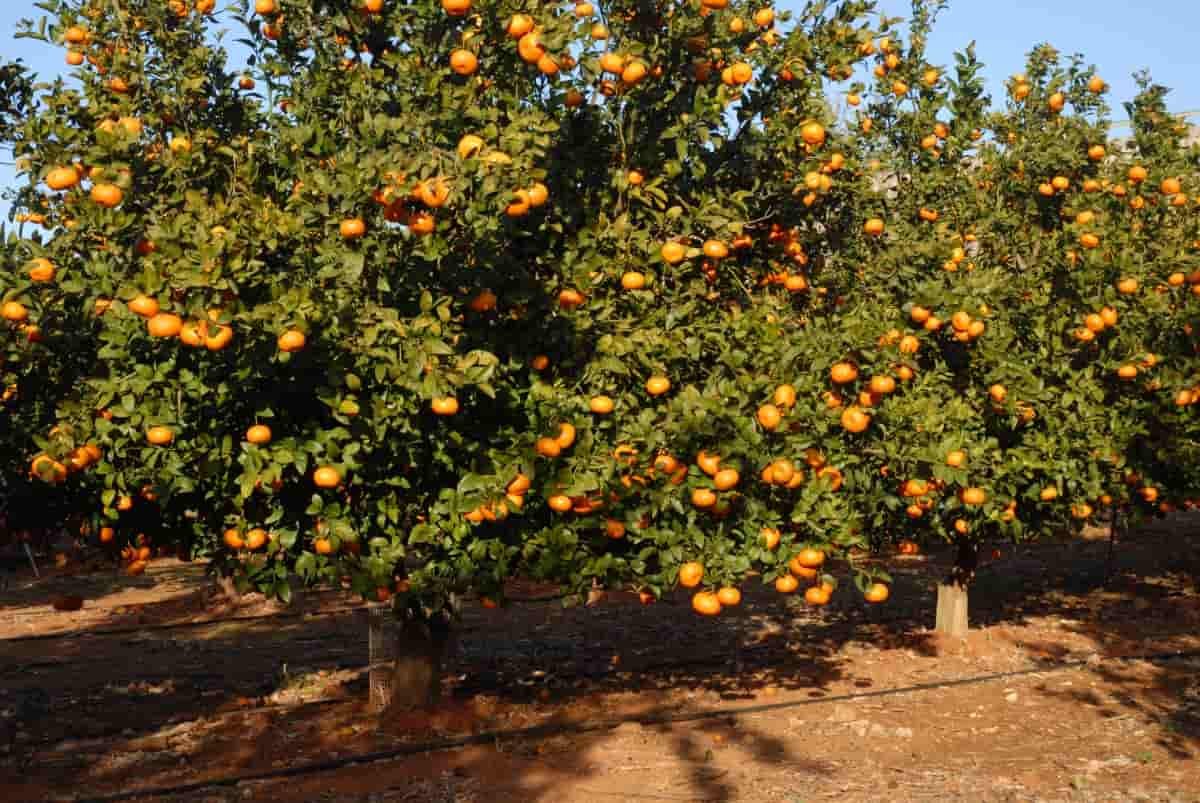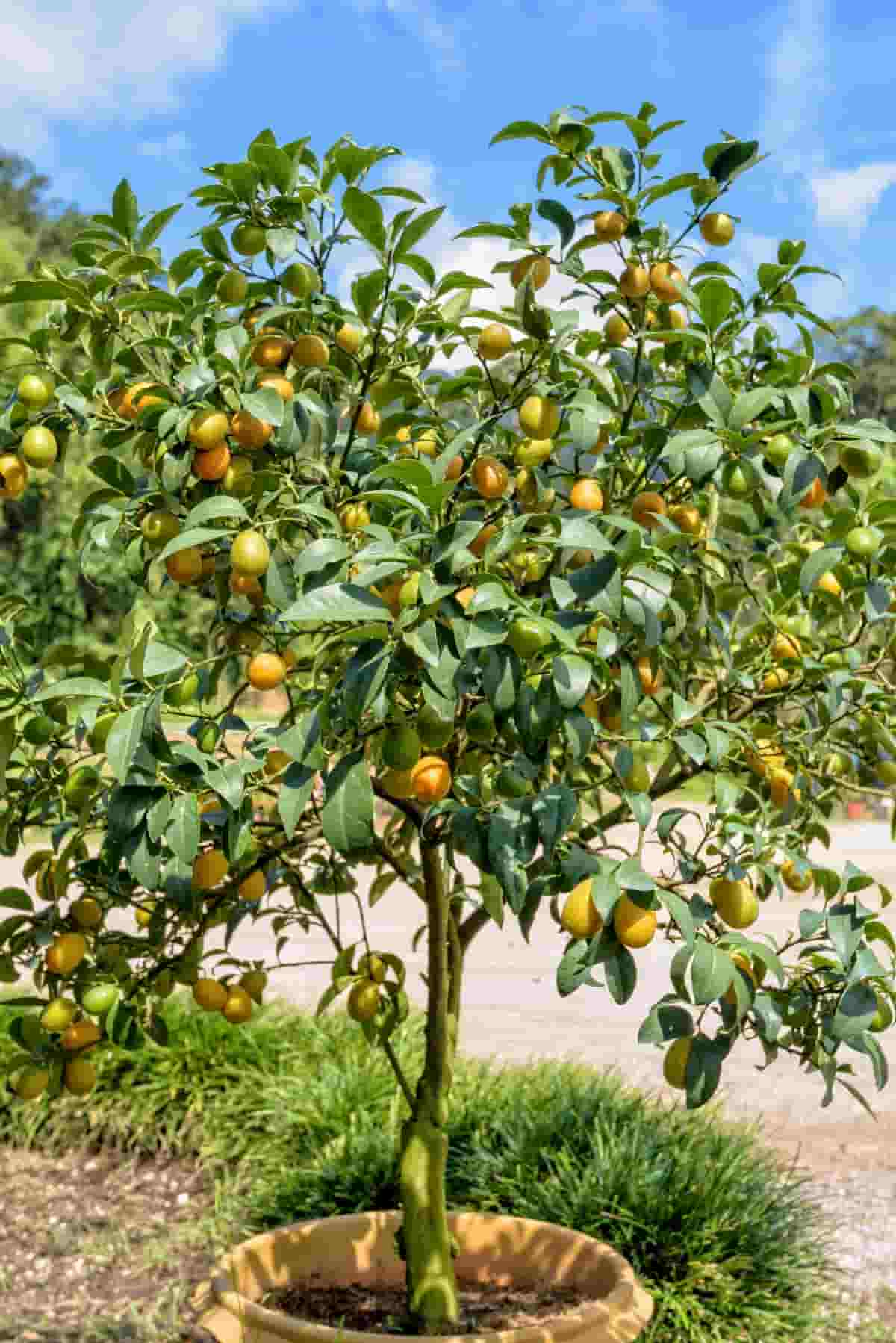Borers are the larvae of certain moths and beetles that feed on the wood in trees instead of the leaves or fruits. They can cause serious damage to fruit trees by tunneling into the trunk, branches, and roots, weakening the tree and making it susceptible to diseases and pests. Borers can also kill young trees or girdle large branches, affecting fruit production and quality. Therefore, it is important to prevent borers from infesting fruit trees and to control them if they do. Here are some natural and home remedies that can help protect your fruit trees from borers.

How to Prevent Borers in Fruit Trees
Understanding Borers Life Cycle in Fruit Trees
Different types of borers have different life cycles, but they all share some common features. The adult moths or beetles emerge from the soil or wood in spring or summer and lay eggs on the bark of fruit trees, usually on the south or west sides where the sun exposure is higher. The eggs change into larvae that bore into the bark and feed on the phloem and sapwood, creating tunnels filled with frass (sawdust-like excrement).
The larvae can feed for several months or years, depending on the species, before they pupate inside the wood or soil. The pupae then transform into adults and emerge to start a new generation. Some borers have one generation yearly, while others have two or more.
Signs and Symptoms of Borer Infestation in Fruit Trees
The most obvious sign of borer infestation is the presence of holes or cracks on the bark of fruit trees, especially near the base or on large branches. These holes may ooze sap or gum, attracting other insects or fungi. You may also notice dying or wilting branches, reduced growth, yellowing leaves, or premature fruit drop. If you peel back the bark near the holes, you may see the larvae, pupae, or adults of the borers, as well as their frass and tunnels.
Pruning and Sanitation Practices to Prevent Borers in Fruit Trees
One of the best ways to prevent borers from attacking fruit trees is to keep them healthy and vigorous. Pruning and sanitation are essential for this purpose. Pruning helps to remove dead, diseased, or damaged branches that can attract borers or provide entry points for them. Pruning also improves air circulation and light penetration, which can reduce stress and enhance tree health.
In case you missed it: How to Enhance Flower Blooms with Baking Soda: Get More Flowers with Baking Soda Application

Sanitation involves removing and destroying any infested wood, such as fallen branches, prunings, or firewood, to prevent the emergence of adult borers or the spread of infestation. Sanitation also includes removing any weeds or grasses around the base of fruit trees that can harbor borers or their natural enemies.
Applying Horticultural Oils to Fruit Trees
Horticultural oils are refined petroleum products that can suffocate or repel borers by coating their eggs, larvae, pupae, or adults. They are usually applied as dormant sprays in winter, early spring before bud break when most borers are still inside the wood or soil. Horticultural oils can also be applied as summer sprays during the egg-laying period of some borers.
Still, they should be used cautiously to avoid phytotoxicity (plant damage) or adverse effects on beneficial insects. Horticultural oils should be diluted with water according to the label instructions and sprayed thoroughly on all tree parts, especially the trunk and main branches.
How Beneficial Insects Can Help to Prevent Borers in Fruit Trees
Beneficial insects are natural enemies of borers that can reduce their population by parasitizing or preying on them. Some beneficial insects that can help control borers are parasitic wasps (such as Trichogramma), predatory beetles (such as Cleridae), lacewings, ladybugs, and assassin bugs. These insects can be attracted to fruit trees by planting flowering plants nearby that provide nectar and pollen for them.
Utilizing Sticky Traps: Monitoring and Trapping Borers with Sticky Traps
Sticky traps are devices coated with a sticky substance that can capture adult borers when they fly around fruit trees looking for mates or egg-laying sites. Sticky traps can be used for monitoring borer activity and identifying their species, which can help determine the best timing for other control methods.
Sticky traps can also be used for trapping borers and reducing their population, especially for those species that have low numbers or are difficult to control with other methods. Sticky traps should be placed on tree trunks or branches at the height of the expected borer flight and checked and replaced regularly.
Adequate Watering and Nutrient Management
Watering and fertilizing fruit trees properly can also help prevent borer infestation by enhancing tree vigor and resistance. Watering should be done deeply and infrequently, depending on the soil type, weather, and tree age and size. Watering should be avoided during periods of drought or heat stress when borers are more active, and trees are more vulnerable.
In case you missed it: How to Use Baking Soda for Treating Chlorosis in Plants

Fertilizing should be done according to soil test results and tree needs, using organic or slow-release fertilizers that do not cause excessive growth or nutrient imbalances. Fertilizing should be avoided in late summer or fall when it can stimulate new growth that borers can attack.
Natural Insecticides for Borer Control: Neem Oil and Pyrethrin-based Products
Neem oil – botanical insecticide derived from the seeds of the neem tree (Azadirachta indica). It can act as a repellent, antifeedant, growth regulator, or oviposition deterrent for borers, depending on the concentration and mode of application. Neem oil applied as a spray or a soil drench, following the label directions.
Pyrethrin-based products are insecticides derived from the flowers of the pyrethrum plant (Chrysanthemum cinerariifolium). They can kill borers by disrupting their nervous system, but they have a short residual effect and are biodegradable. Pyrethrin-based products can be applied as sprays, following the label directions.
Homemade Remedies: Garlic Spray and Chili Pepper Solution to Prevent Borers in Fruit Trees
Garlic spray is a homemade remedy that can repel borers with its strong odor and taste. To make garlic spray, peel and chop one bulb of garlic and boil it in two cups of water for 15 minutes. Then, strain the liquid and add two tablespoons of oil and one spoon of liquid soap. Dilute the solution with one gallon of water and spray it on fruit trees every two weeks during the borer season.
Chili pepper solution is another homemade remedy that can deter borers by its spicy flavor and irritant effect. To make a chili pepper solution, chop one cup of hot peppers (such as jalapeños or habaneros) and soak them in two cups of water for 24 hours. Then, strain the liquid and add one spoon of liquid soap. Dilute the solution with one gallon of water and spray it on fruit trees every two weeks during the borer season.
Wrapping Tree Trunks with Burlap or Aluminum Foil
Wrapping tree trunks with burlap or aluminum foil is a physical method that can prevent borers from laying eggs on the bark or emerging from the wood. Burlap or foil should be wrapped around the trunk from the ground level to the lower branches before the adult borers emerge in spring or summer. The wrapping should be removed in fall or winter to allow the bark to breathe and prevent moisture accumulation or fungal growth.
Using Heat to Eliminate Borers in Infested Wood
Heat is a non-chemical method that can kill borers in infested wood by exposing them to high temperatures that destroy their cells and enzymes. Heat can be applied using a propane torch, a heat gun, or a solar heater. The infested wood should be heated to at least 140°F for 30 minutes or more, depending on the thickness moisture content of the wood. Care should be taken to avoid burning or scorching the wood or injuring nearby plants or animals.
In case you missed it: How to Enhance Flower Blooms with Baking Soda: Get More Flowers with Baking Soda Application

Conclusion
To effectively combat borers in fruit trees, it is essential to employ natural and home remedies. These include employing beneficial nematodes, using pheromone traps, practicing proper tree maintenance, and applying insecticidal sprays judiciously. Implementing these strategies can help protect fruit trees from borers, ensuring a healthier and more fruitful harvest.
- Feed Your Flock for Less: Top 10 Tips to Save on Chicken Feed
- Ultimate Guide to Ossabaw Island Hog: Breeding, Raising, Diet, and Care
- Hatching Answers: The Top 10 Reasons Your Chickens Aren’t Laying Eggs
- Eggs and Economics: Breaking Down the Cost of Raising Backyard Chickens
- Defend Your Greens: Proven Methods to Keep Iguanas Out of Your Garden
- Ultimate Guide to Cinnamon Queen Chicken: A Comprehensive Guide for Beginners
- Ultimate Guide to California Tan Chicken: Breeding, Raising, Diet, Egg-Production and Care
- Ultimate Guide to Marsh Daisy Chicken: Breeding, Raising, Diet, and Care
- 10 Types of Chicken Farming Businesses You Can Start for Profits